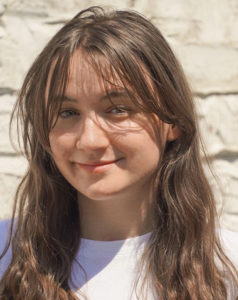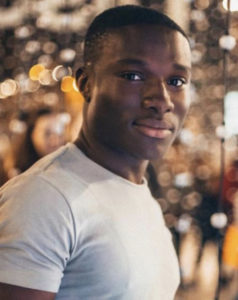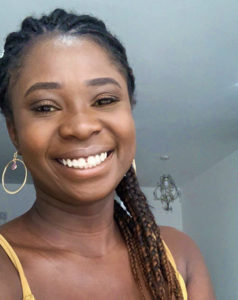Institutions must work with students to bring about positive changes to the medical curriculum, say Abigail Clynch, Jayden Gittens, and Portia Amoako-Tawiah
The NHS has been plagued by troubling statistics about the disparities in health outcomes among black and minority ethnic (BAME) patients for a long time. Yet the covid-19 pandemic has served as a sharp reminder of just how detrimental these disparities are; people who identify as Black African or Black Caribbean are almost twice as likely to die of covid-19 in comparison to those of a white British ethnicity. Reading figures like this triggered a visceral response in us, prompting us to act and work to diversify our medical curriculum.
The medical curriculum is an appropriate place to start; by educating students we ensure they deliver high quality care to all patients, regardless of race, from their very first day of practice as doctors. However, this work is not the sole responsibility of medical students; there must be collaboration with medical schools to ensure that they are receptive to students who are petitioning for change. This will liberate students and doctors alike from the notion that politics and medicine are mutually exclusive.
The only way to improve the lack of diversity and inclusivity in our curriculum is to highlight the areas in which it is lacking. Therefore, in May 2020, we created a small WhatsApp group of eight medical students, ranging from first to fourth year, to construct a report. The ultimate aim of the report was to send it to our medical school at the University of Liverpool, lobbying them for change through proposing actionable suggestions for improvement. Within our report, we analysed a number of vital issues with the current curriculum; these ranged from the lack of teaching on the impact of race on disease pathophysiology, to a lack of BAME simulated patients in our communication skills sessions. This analysis formed the foundations of a thorough report.
Less than two weeks into our research, with the harrowing death of George Floyd acting as a catalyst for the resurgence of the Black Lives Matter movement, we felt a cultural shift in society. We have suddenly begun to have uncomfortable conversations that we previously avoided, and our social media platforms have increasingly become places to share knowledge on how systemic racism and discrimination have for too long negatively affected the lives of people of colour. It sparked motivation within us to complete our report and was the driving force for six weeks of Zoom calls, research, and writing.
Alongside our own analysis of the curriculum, we opened up a survey to all medical students at the University of Liverpool, to which we had 113 responses. A majority of the participants agreed that the medical curriculum does not reflect the diverse society we live in today. Dermatological teaching about BAME patients and better representation of BAME teaching staff were highlighted by survey respondents as areas where we could do better. We feel confident that our report will start conversations and could help to shape long awaited changes at our university.
For many of the group involved, this was our first time being described as “student activists.” Holding a label that can sometimes come with connotations of rebellion, we felt conscious of how our report would be received by our medical school. Paradoxically, it is also often the case that as students we are looked to as the “voice of the future”—empowered by our fresh outlook on society to take on structural and societal problems from the grassroots up. While this is a positive perception in some ways, it often comes with the expectation that this work is done with little, if any, protected time or pay to compensate for what can consume large periods of self-directed learning time. We are passionate about racial inequalities and we felt our report was the best way to do what we could to create true change, however, this does not take away from the emotional, physical, and intellectual fatigue that we felt on its completion.
Despite being in a medical school that has often demonstrated responsiveness to student suggestions, we sent our report off with conflicting feelings of anxiety and excitement. We could not shift the feeling of stigma around our activism. As student doctors, we have felt the presence of unspoken sentiments that we cannot be political. Though often unintentional, this ideology is outdated and can have a detrimental effect on students attempting to enact change. In order to challenge this idea, student doctors and their universities must collaborate on proactive solutions, as students provide a unique perspective on current issues that have been overlooked in the past. This collaboration can occur productively in a number of ways such as through committees, focus groups, and teaching sessions.
Since the recent discourse around the Black Lives Matter movement began, there has been a noticeable shift in institutional behaviour towards discussions around topics such as race, class, and gender. For example, Imperial College London has stopped using their motto, a phrase rooted in the dark past of the British Empire. Yet many of these changes have been conceived and led by students, not institutions. Second year medical student, Malone Mukwende, for example, recently announced a dermatological handbook, Mind The Gap, for black and brown skin, and the student-led African Caribbean Medical Association (ACMA) at Cardiff University published an advisory document to the Cardiff School of Medicine.
Medical education must ensure that the doctors of tomorrow are equipped with the skills to provide care in the best interest of patients, no matter their race or ethnic origin. As the current covid-19 pandemic illustrates, failure to do so costs lives. Institutions must work with grassroots movements led by students to implement changes—changes we feel are long overdue.
 Abigail Clynch is a second year medical student at the University of Liverpool, with a particular interest in health inequalities, public health, and surgery. Twitter @ClynchAbigail
Abigail Clynch is a second year medical student at the University of Liverpool, with a particular interest in health inequalities, public health, and surgery. Twitter @ClynchAbigail
Competing interests: None declared.
 Jayden Gittens is a second year medical student at the University of Liverpool interested in widening participation, health inequalities, and surgery. Twitter @JaydenGittens
Jayden Gittens is a second year medical student at the University of Liverpool interested in widening participation, health inequalities, and surgery. Twitter @JaydenGittens
Competing interests: None declared.
 Portia Amoako-Tawiah is a third year medical student at the University of Liverpool and a co-founder of BME Medics Liverpool. She has a keen interest in medical ethics, women’s health, and surgery. Twitter @PortiaAmoako7
Portia Amoako-Tawiah is a third year medical student at the University of Liverpool and a co-founder of BME Medics Liverpool. She has a keen interest in medical ethics, women’s health, and surgery. Twitter @PortiaAmoako7
Competing interests: None declared.
Note: You can read a copy of the report Abigail, Jayden, and Portia sent to their university through links on their Twitter profiles.
